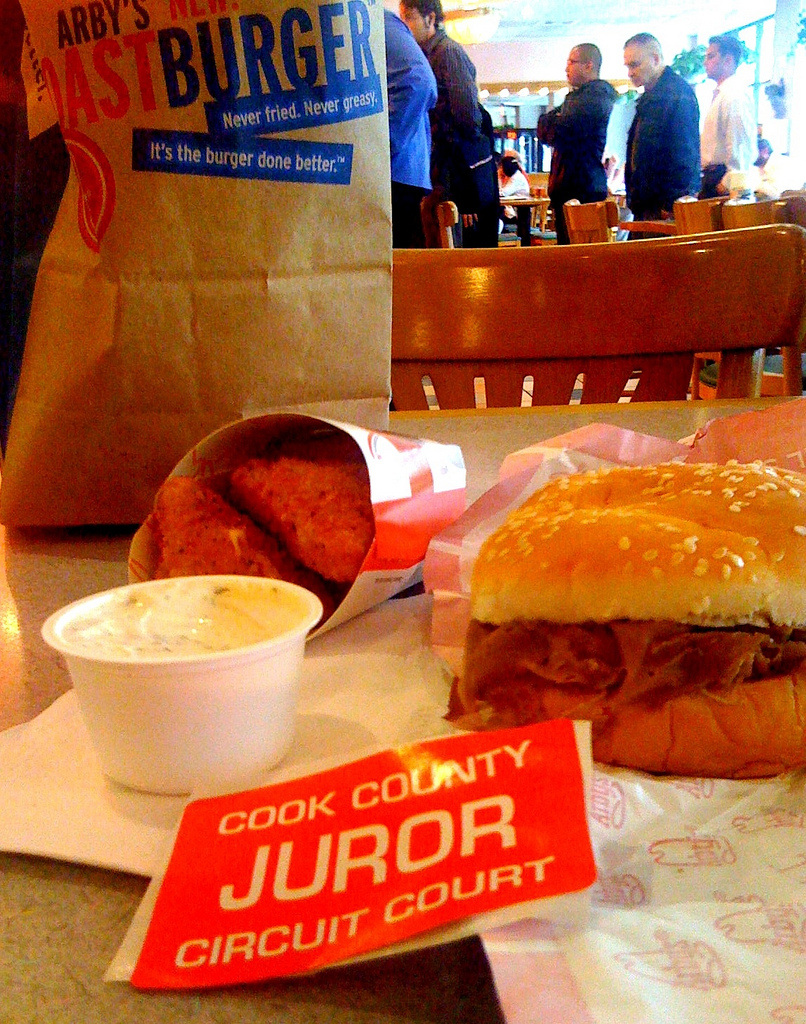| Fellow potential jurors in Provo on Tuesday must have done a double take when Gov. Gary Herbert came through the door. He, like many of you through the years, had gotten the letter in the mail telling him he had to report on a certain day, setting aside whatever else it was he had intended to do. Like you, he probably had other plans. For many Americans — most, perhaps — jury duty is like catching a cold. It never comes at a good time, and you can’t get over it fast enough. But at least we know for sure now that the summonses truly are passed out at random. We also should know something else. Jury service holds a key to raising dismal voter turnout rates, not only in Utah, but everywhere. |
| | That may be a bold statement. Already, by some estimates, 32 million people are called to jury duty each year nationwide. That’s what Mona Chalabi from the website fivethirtyeight.com told NPR recently. Given my theory, we ought to be so eager to vote by now that we camp out at polling places. But of those 32 million, Chalabi estimated only about 8 million actually show up for service. The rest either have an excuse or simply blow off the summons. And, just to clarify, the act of showing up for jury service alone won’t make you more eager to vote. Being selected to serve on a jury, and particularly on a difficult and complicated trial, will. Two professors, Perry Deess from the New Jersey Institute of Technology, and John Gastil from the University of Washington, posted results of a 2009 study on thejuryexpert.com, in which they compared jury service records to voting records. They found that people who didn’t vote before serving on a jury were more likely to vote afterward. But, more specifically, people who served on a hung jury, in which no verdict was reached, showed the largest increase in voting rates, 6.8 percent. This, the study’s authors said, may be because of the intense deliberations that occur in such cases. “..long and challenging deliberations that end in a contested deadlock leave a stronger impression than does reaching a comfortable verdict with one’s peers,” they wrote. The study’s authors said they were inspired by Alexis de Tocqueville, the French thinker and historian who visited and observed the United States in the 19th century. He wasn’t sure whether citizen juries made for better trials, but he said jury service “rubs off that private selfishness which is the rust of society.” He also said it made “all men feel that they have duties toward society and that they take a share in its government." Unfortunately, criminals aren’t providing enough complicated crimes resulting in hung juries to move the needle much on the roughly 28 percent of eligible voters who cast ballots in Utah last fall. Of course, it’s ridiculous to say jury duty is the key to solving a dwindling sense of civic involvement. At the beginning of this column, I said it was “a key,” not the final solution. And the key it holds has less to do with jury duty than with deliberative civic involvement of any kind. Utahns don’t vote for many reasons, including a one-party dominated political structure that results in few meaningful ballot choices. But a greater involvement might result in more competitive races, as well. In Utah, according to the Administrative Office of the Courts, 48,957 people were summoned to jury duty last year and only 1,268 failed to show, a measly 3 percent. The governor’s appearance, then, wasn’t particularly remarkable. Utahns tend to show up. Finding a way to get more people to step out of their lives for a moment and give of themselves to a difficult government problem, whether on a jury or in some other capacity, would go a long way toward improving participation. How to do that, short of issuing summonses for government service or mandating attendance at a debate, is a difficult question. |


 RSS Feed
RSS Feed

